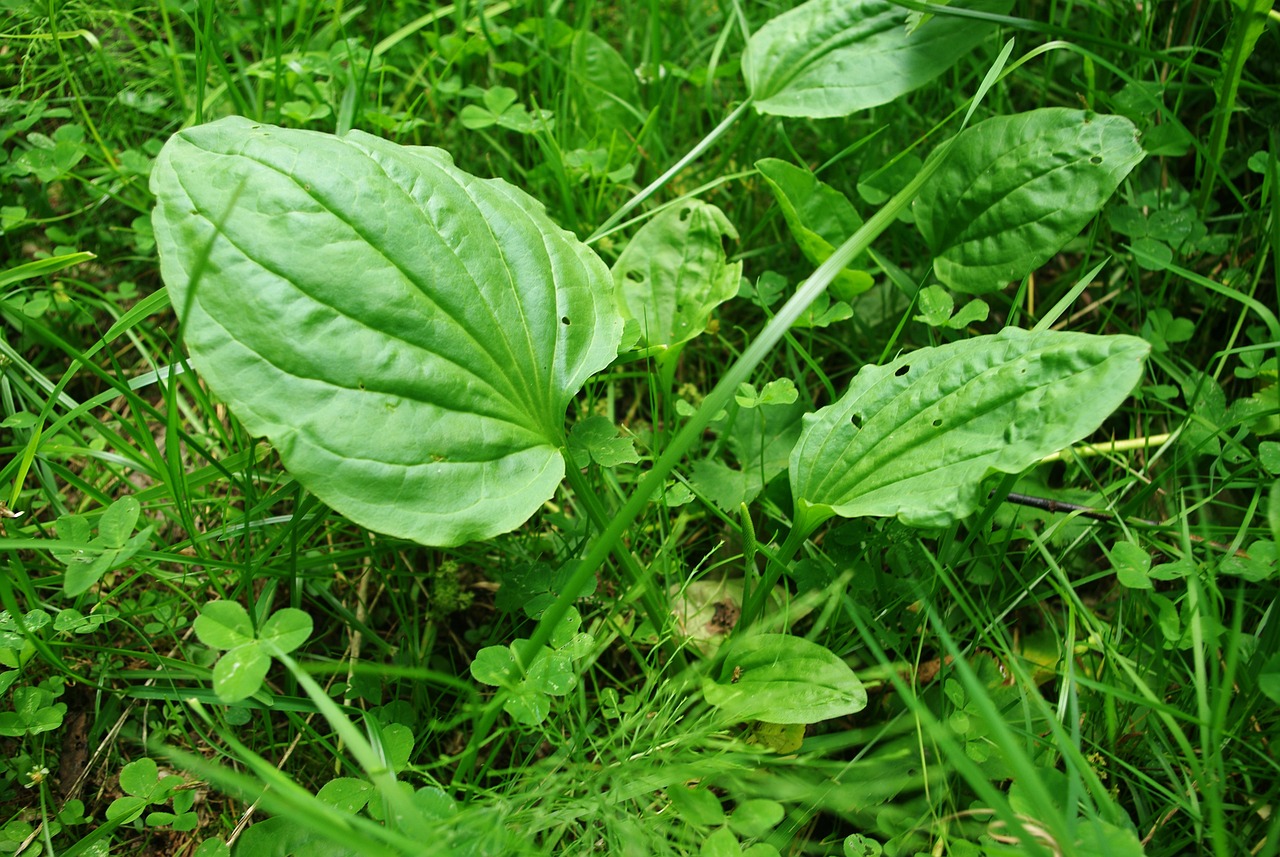We are going to look at plantain in this article. You will find out what this herb is, how you can use it and the conditions that could be helped by plantain.
What is Plantain?
Plantain is a perennial herb that is native to north and central Asia as well as Europe. In addition early settlers in the United States took plantain with them and cultivated it there. In total there are over 200 varieties of Plantain and has been used since Saxon times. It is quite a hardy herb and is often found growing in field, lawns, roadsides and footpaths. The sturdy leaves and flower stalks grow in a basal rosette directly from the mass of light-brown rootlets. As there a number of species the leaves can be either broad and ovate or narrow like a lance. The plant flowers between June and September and circle wand like spikes at the tips of the stems.
How to Use Plantain
The leaves contain the most medicinal properties however they can lose some of these when they are placed in boiling water. It is best to pick the leaves in spring before the plant begins to flower and the leaves can also be used in things like salad. If you are going to keep the leaves then it is a good idea to dry them out and store them in a sealed container. In addition you will also be able to buy a number of remedies from your health food store.
You can also make your own remedies, for example a leaf infusion. This can simply be done by placed some leaves in a warm glass and then covering with boiling water. You should leave it to infuse for around 5 to 10 minutes and then it can be drunk warm or cold. To make a tincture add 4oz of fresh leaves to a pint of alcohol and store in a sealed container for a couple of weeks. Make sure you shake it several times a day then when complete strain before use.
Uses of Plantain
The leaves have an antibacterial property and so you can crush some fresh leaves and use them externally. Used in this way they are useful for treating wounds, sores, insect bites, bee and wasp stings, eczema, and sunburn.
Plantain has been used for hundreds of years for different conditions and in ancient times it was thought to be a very valuable remedy for conditions like coughs, bronchitis, tuberculosis, sore throat, laryngitis, urinary infections, and digestive problems. In addition it is thought the root of the herb is useful for toothache and the juice may relieve earache.
Plantain is used all over the world and the Russian Ministry of Health claims it is a valuable treatment for chronic colitis, acute gastritis, enteritis, and enterocolitis. In Chinese medicine plantain is thought to be a useful remedy for impotence.
Side Effects and Precautions
Plantain is not recommended for pregnant women and a herbalist should be consulted before nursing mother or children use it. If the seeds are inhaled they can bring on asthma attacks and it they are not soaked before eating they can cause gastrointestinal problems. In addition the plant and seeds may cause allergic reactions in some people.
There are some medications that it can interfere with, for example it may reduce absorption of digoxin and lithium. It may also interfere with anticoagulants due to its vitamin K content. Plantain should also not be taken with diuretics as it can increase potassium loss. If you have any concerns it is a good idea to consult a doctor before taking plantain.
The Author:
This article has been supplied by alternative therapies directory. You can also find more information on our Herbal Medicine page. http://www.alternativetherapiesdirectory.com
